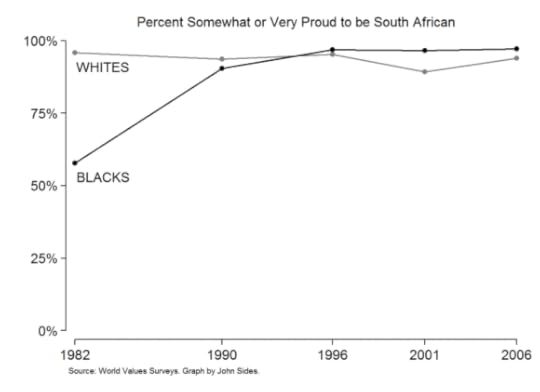Chart Of The Day
John Sides provides historical context:
In 1982, whites were nearly unanimous in expressing some degree of pride as South Africans (98%), but barely half of blacks (57%) did so. This gap is a stark reminder of how deeply the effects of apartheid were felt. It was not just a question of opposing a white-led government. Among blacks, there was a profound alienation from the state itself.
But the release of Mandela from prison in February 1990 and the early signs of apartheid’s end — such as negotiations between the white-led government and the African National Congress that spring and summer — appeared to close this gap. In the 1990 survey, which was fielded in October and November, 93% of whites and 90% of blacks expressed pride.
Mandela’s legacy may be even more visible in how little white and black South Africans’ patriotism has changed since then. Although his leadership — indeed, any one person’s leadership — could never eliminate racism or racial tensions, whites and blacks continued to express high levels of pride. The transition to a black-led government under Mandela and later Thabo Mbeki did not make white South Africans any less proud to be South African. Blacks too remained similarly proud, despite the disappointments that they have experienced and the challenges they still face.



Andrew Sullivan's Blog
- Andrew Sullivan's profile
- 154 followers




